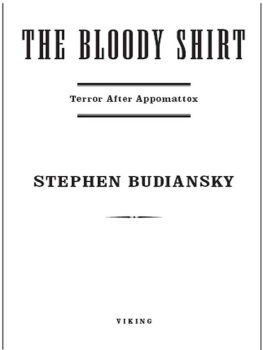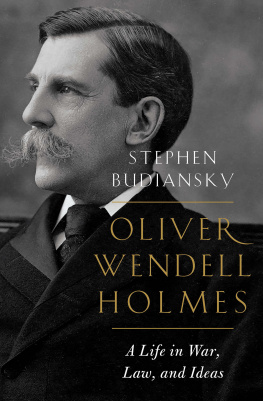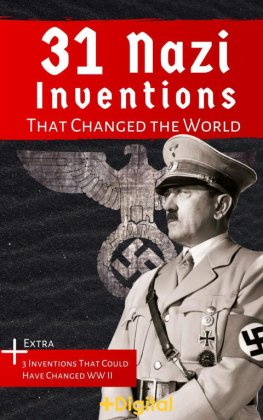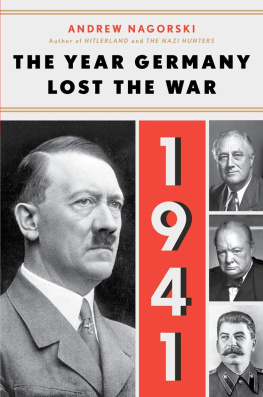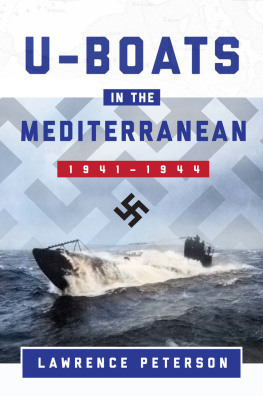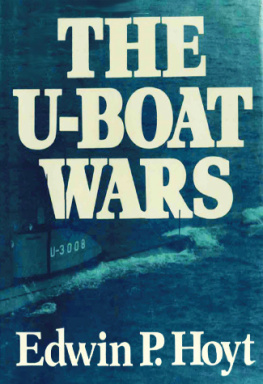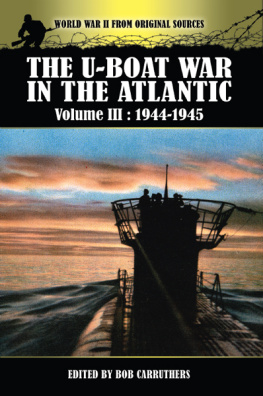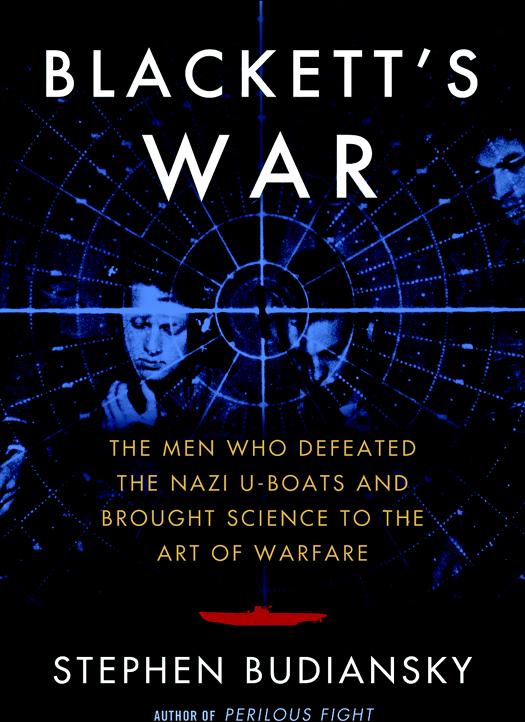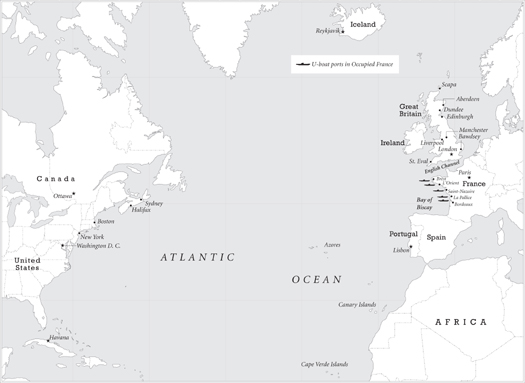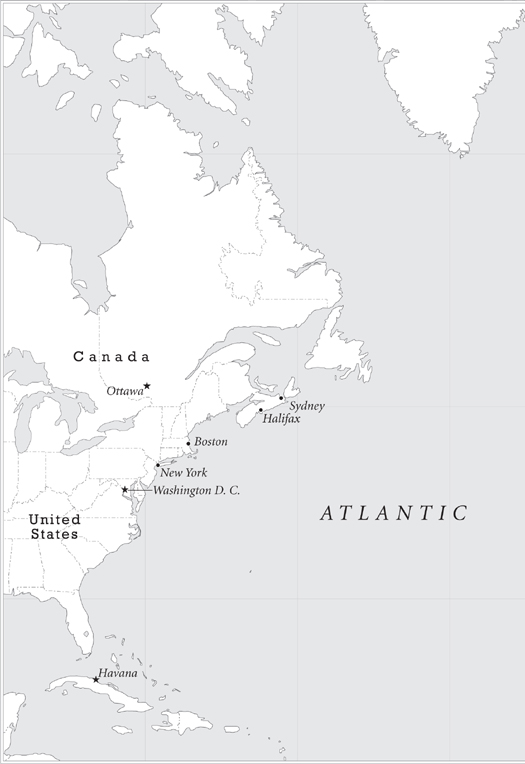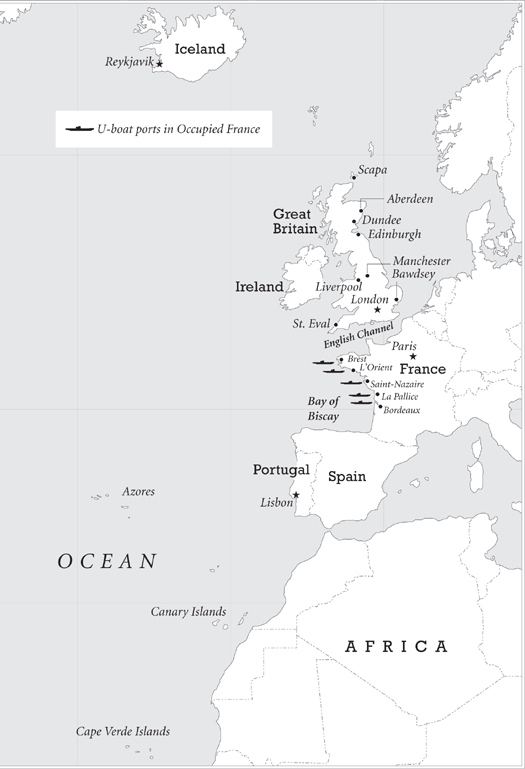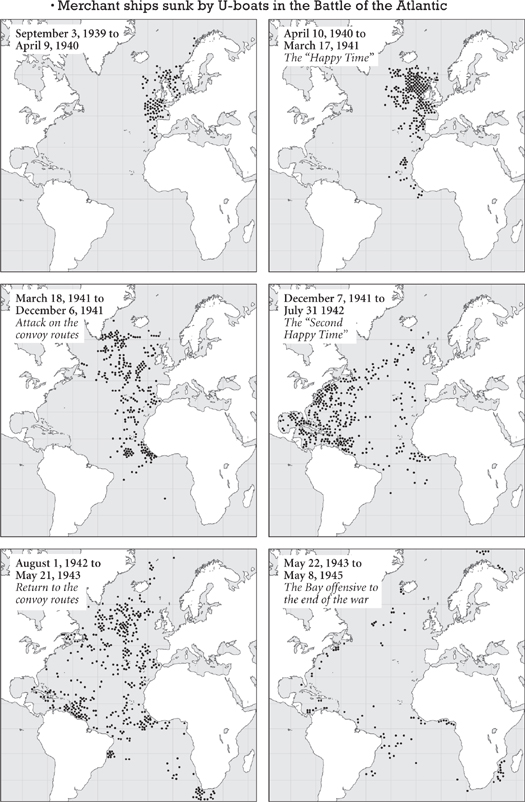THIS IS A BORZOI BOOK
PUBLISHED BY ALFRED A. KNOPF
Copyright 2013 by Stephen Budiansky
All rights reserved. Published in the United States by Alfred A. Knopf, a division of Random House, Inc., New York, and in Canada by Random House of Canada Limited, Toronto.
www.aaknopf.com
Knopf, Borzoi Books, and the colophon are registered trademarks of Random House, Inc.
Library of Congress Cataloging-in-Publication Data
Budiansky, Stephen.
Blacketts war : the men who defeated the Nazi u-boats and brought science to the art of warfare / by Stephen Budiansky.1st ed.
p. cm.
Includes bibliographical references.
eISBN: 978-0-307-96263-8
1. World War, 19391945Radar. 2. World War, 19391945Naval operationsSubmarine. 3. Anti-submarine warfareHistory20th century. 4. World War, 19391945Atlantic Ocean. 5. Blackett, P. M. S. (Patrick Maynard Stuart), Baron Blackett, 18971974. I. Title.
D 810. R 33 B 79 2013
940.54516dc23 2012025272
Front-of-jacket photograph : U.S. Navy radar scope, World War II.
National Archives and Records Administration/Photo Researchers Inc.
Jacket design by Joe Montgomery
Maps and diagrams by Dave Merrill
v3.1
To Ralph Erskine
Contents
Preface
FROM 1941 TO 1943, a small group of British and American scientists, almost entirely without military experience or knowledge, revolutionized the way wars are run and won.
Applying the basic tools of their tradea thoroughly scientific mind-set backed by little more than simple mathematics and probability theorythey repeatedly demonstrated to disbelieving admirals and generals ways to double or triple the effectiveness of the faltering Allied campaign against the German U-boats. In the grim fight for control of the Atlantic during those years of uncertainty, the scientists unconventional insights achieved the near-miraculous in a battle crucial to the larger struggle to defeat Hitlers Germany.
The scientists who beat the U-boats never numbered more than a hundred in all, a fraction of the thousands who worked to achieve the two far better known triumphs of science in the war, the breaking of the German Enigma cipher and the making of the atomic bomb. Yet they were a collection of scientific talent the likes of which probably has never been seen before or since, certainly the oddest such collection ever assembled in one place: among them were physicists, chemists, botanists, physiologists, geneticists, insurance actuaries, economists, mathematicians, and astronomers. Six would win the Nobel Prize, in physics, chemistry, or medicine. Most were far to the left in their politics: some of the best were out-and-out Marxists, and more than a few had been committed pacifists who had come to see the defeat of the Nazis as a cause that overrode their abhorrence of war. Many were almost caricatures of the sort of unmilitary, awkward, overly intellectual civilians that military men routinely viewed with undisguised contempt.
That they were there when they were so desperately needed was the extraordinary result of a confluence of events and circumstances that I have set out to describe in the following pages: the onrush of devastating reality after decades of complacency toward the submarine menace, a political awakening of scientists brought about by the Great Depression and the rise of fascism, struggles within the militaries of Britain and the United States that pitted tradition against technical innovation and social change, and the appearance in the right place of a few unconventional political and military leaders who respected scienceand of a few phenomenally accomplished scientists of great moral courage and unshakable intellectual integrity.
Patrick Blackett, a British physicist, exnaval officer, future Nobel winner, and ardent socialist, stood at the forefront of those scientists of penetrating insight and courage. It is no exaggeration to say that few men did more to win the war against Nazi Germany than Patrick Blackett. Certainly, few who did as much as he did have been so little remembered. Partly that is because he was a difficult, private, and inner-directed man whose political views and personality did not age well in the postwar world. Most people todaymyself includedwill find his uncritical admiration for Stalins Soviet Union and his doctrinaire social Marxism painfully naive, at best. But it is worth remembering that that same navet was the source of an idealism that we can only wish there was more of today: whatever else, Patrick Blackett was fired by a sense of justice, righteousness, and self-sacrificing courage that drove him to serve his country, and the cause of civilization itself, at the time of their utmost need.
As director of the antisubmarine analysis effort for the Royal Air Force and Royal Navy during World War II, Blackett not only helped win that battle, and the war, but in so doing founded the new science of operational research; it has been an indispensable part of military training and planning ever since, a revolution in the application of science to the art of warfare.
It is far from clear that he or any of his colleagues from those perilous and heroic days of the scientific war against the U-boats would have the chance to make such an original contribution today. The bureaucratic machinery of war has become too vast and cumbersome to leave room for the gifted improvisation and iconoclastic thinking that Blackett and his colleagues brought to bear; todays routine incorporation of science in military affairs, which they themselves helped to bring about, has ironically sharpened the lines between military and civilian expertise; and science itself has become ever more narrow, specialized, and competitive, to the point that few scientists with the intensity to achieve discoveries worthy of a Nobel Prize have time left to think about much else.
Which is our loss, and which makes their story all the more worth telling.
Chronology
1868
British engineer Robert Whitehead, working at his factory in Croatia, develops a practical self-running torpedo.
1881
American inventor John P. Holland begins trials on the Hudson River of a prototype of the first true modern submarine, dubbed by the press the Fenian Ram, June.
1897
Patrick Blackett is born in London, November 18.
1900
U.S. Navy takes delivery of its first submarine, the Holland VI, April 11.
1903
British naval college at Osborne opens as part of Admiral Jacky Fishers scheme to expand the number of officer cadets and increase the rigor of their scientific training.


